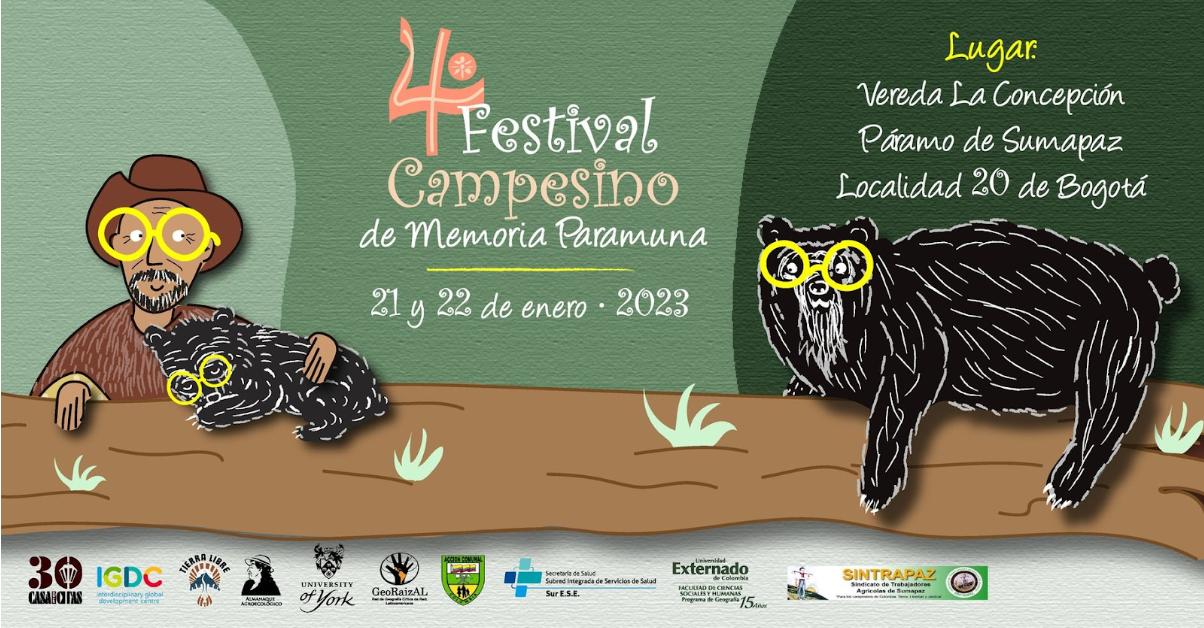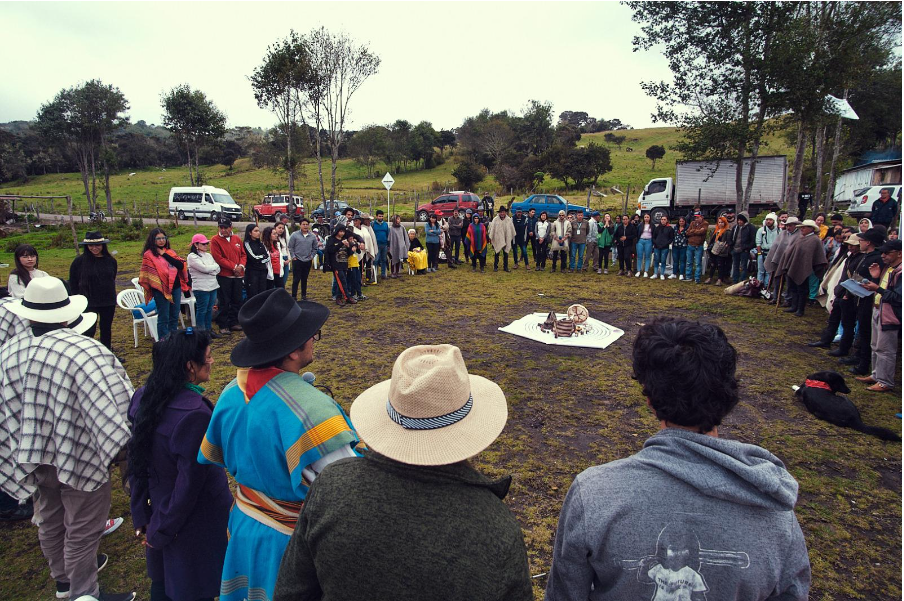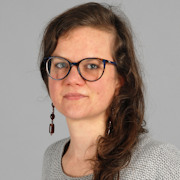Celebrating the páramo’s environmental and cultural diversity!
IGDC co-organised the 4th Festival Campesino de Memoria Paramuna: art and agroecology festival in defence of the Colombian páramos

Hanne Cottyn shares details of this amazing event which she helped to organise during her time with IGDC
On 21 and 22 January 2023, some 200 artists and residents of rural Bogotá, social organisations and agroecological initiatives, together with visitors from the city of Bogotá and further away, gathered in the Colombian community of La Concepción to celebrate the cultural and environmental diversity of rural life in the páramo. The term páramo refers to the high-altitude zones of the northern Andean mountains, above the treeline and under the snowline. These moorlands are crucial to urban water security and global carbon storage, as well as to peasant livelihoods and culture. La Concepción—also known as La dijunta Cuncia—is located at the heart of the páramo of Sumapaz, the largest páramo area worldwide, situated just south of Bogotá. This was the first time that the páramo itself was hosting the “Campesino Festival”—a series of artistic and agroecological festivals that seeks to enhance the visibility of the campesino (peasant) communities that inhabit the páramos surrounding Bogotá.
The IGDC has been a co-organiser of the festival series from the very start in 2019 through the NERC-funded research project about the Colombian páramos (see for instance the second and entirely virtual festival organised during the pandemic). This fourth festival constitutes the key event of a new project, titled “Paramunidos: Towards inclusive environmental governance in the Colombian paramos by strengthening participatory artistic and didactic spaces.” Paramunidos is a Knowledge Exchange project financed by the University of York through the Place & Community Fund. The Colectivo Almanaques Agroecológicos, the local partner on the Paramunidos project, took the lead in the organisation of the Festival, and involved a range of regional organisations, including the Agrarian Workers Union of Sumapaz (SINTRAPAZ), the association of community boards of Sumapaz (ASOJUNTAS), the regional network of health services (Secretaria de Salud Sur ESE), the Department of Geography of the Universidad Externado, the cultural centre Restaurante Casa de Citas, and the social movements Tierra Libre and GeoRaizAL.
The previous festivals have focused on agroecology (2019), art (2021), and sound (2022). This year the festival centred on “memory”, recognising the ancestral and peasant memory of the páramos of Sumapaz, Chingaza and Cruz Verde. The festival offered a diverse programme with music, poetry, dance, theatre, and movie screenings. The artistic programme brought together performers from the rural areas of Bogotá, including many of the musicians featured in the IGDC’s co-produced music album Sonidos Agroecológicos, as well as well-known artists. The movie screenings included the documentary Cantares del Páramo, co-produced by the University of York, which recounts the political, cultural and environmental memory of the páramos of Sumapaz and Chingaza through the songs of the music album. Moreover, the public could take part in an exchange of agroecological experiences at a peasant fair, an astronomy workshop with telescope observations of space, and a hydraulic rocket workshop.
 Opening ceremony. Credits: Felipe Ottalora
Opening ceremony. Credits: Felipe Ottalora
According to Lina Cortés, director of Colectivo Almanaques Agroecológicos and coordinator of the festival, the festival is not just a fun party but also demonstrates “the environmental complexity of the páramos and what this means for peasant creativity and identity, a social and political movement that has helped the páramos to be protected and recognized.” Since 2011, the campesinos of Sumapaz have been mobilising to become a “Zona de Reserva Campesina” (ZRC) or Peasant Reserve Zone. The ZRC is a legal tool that guarantees environmental protection, and strengthens campesinos’ participation in land use planning to prevent land concentration and conflict. After a long struggle, the creation of a ZRC in Sumapaz was approved on 30 December 2022. On the second day of the Festival, members of the 28 communities that make up the Sumapaz district, together with social movements and public institutions, gathered to discuss this achievement in the framework of the first assembly of the community association Asojuntas. Two weeks later, on 4 February, Sumapaz became the first ZRC in the country to be formally established as part of the Comprehensive Rural Reform, in line with the Peace Agreement, under the current government of Gustavo Petro.
The recognition of Sumapaz as a ZRC demonstrates that peasant and environmental concerns are not mutually exclusive. Yet, the translation of this peasant-páramo entanglement into adequate environmental policies can be challenging and requires a strong horizontal knowledge exchange. By facilitating participatory spaces such as the Festival, the Paramunidos project seeks to respond to the need to include local knowledge and cultural practices in building more inclusive environmental governance of the páramos. Moreover, the Festival confirms the power of art in generating a knowledge exchange and fostering awareness about the protection of the páramos. In the words of Estrella Guerrero, poet, union activist, and campesina, the Festival exposed “the importance of art to tell, denounce, dream, and teach the experiences and worldview of the campesinos.”
You can explore more about the experiences, knowledge, history, and projects of the campesino communities of the páramos of Sumapaz and Chingaza via the online, interactive platform Paramunos (Spanish), https://paramunos.com/
| Features Researcher | Hanne Cottyn |
|---|---|
 |
Following her time with IGDC and the University of York History Department Hanne has now moved onto a PostDoc Position at Ghent University. Hanne’s research is situated on the crossroads of rural history, environmental humanities, and critical global studies, with a particular interest in Latin America and the Caribbean, more specifically the Andean region. Profile |
Contact us
Interdisciplinary Global Development Centre
igdc@york.ac.uk
01904 323716
Department of Politics and International Relations, University of York, Heslington, York, YO10 5DD, UK
Twitter
Contact us
Interdisciplinary Global Development Centre
igdc@york.ac.uk
01904 323716
Department of Politics and International Relations, University of York, Heslington, York, YO10 5DD, UK
Twitter